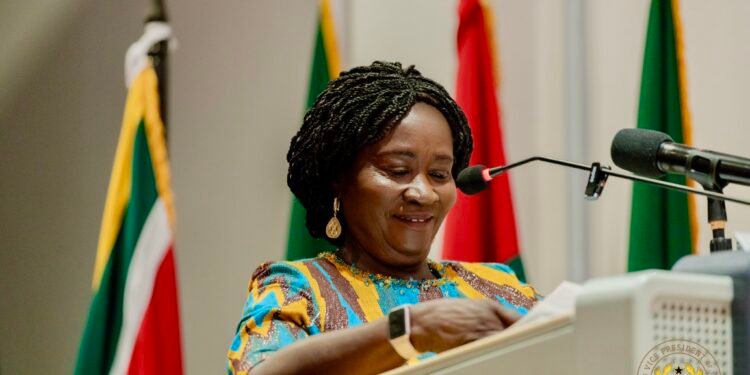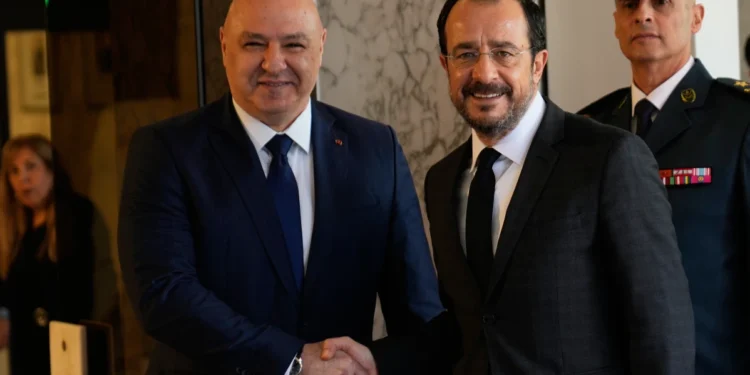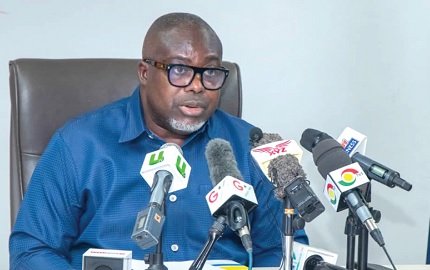Hon. Felix Ofosu-Kwakye, Minister in Charge of Government Communications and Member of Parliament for Abura-Asebu-Kwamankese constituency has dismissed claims made by renowned academic, Professor Stephen Adei that the Ghana Gold Board (GoldBod) is legalizing the activities of illegal mining, commonly known as “galamsey”.
Ofosu-Kwakye, a vocal defender of the government’s mining policies, argued that Professor Adei’s claims are not backed by any concrete evidence and are just mere speculation.
The minister reiterated the government’s commitment to formalizing the artisanal and small-scale mining (ASM) sector and ensuring that the GoldBod’s operations adhere strictly to the legal and regulatory framework governing the industry.
“Professor, he himself hasn’t provided any basis, he hasn’t provided any evidence, he hasn’t shown us any proof of the claim that he’s making.”
Hon. Felix Ofosu-Kwaky
Ofosu-Kwakye stated emphatically, affirming that there is a need for substantive evidence to support such allegations.
Gold Board and Economy

The Ghana Gold Board (GoldBod), rebranded from Precious Mineral Marketing Company (PMMC) in April, 2025, demonstrated a strong initial track record in enhancing economic stabilisation by formalising and centralising gold trade.
By regulating the artisanal and small-scale mining sector and holding exclusive rights to buy and export its output, the board significantly increased official gold export revenues.
This boosted Ghana’s foreign exchange reserves and supported the Ghanaian cedi, contributing to better macroeconomic stability.
The board’s operations have effectively curbed smuggling and improved compliance, ensuring more value remains within the domestic economy.
Furthermore, GoldBod enhanced transparency and implemented responsible sourcing practices, which is expected to attract more responsible investors and improve Ghana’s reputation in the global gold market, a narrative directly contrary to the views of many including Prof. Stephen Adei.
The strategic move to convert gold into foreign exchange, combined with strong global gold prices, provided a timely boost to the Bank of Ghana’s reserves and eased inflationary pressures. As part this initiative, the Board rollout Domestic Gold Purchase Programme.
Debunking the Galamsey Narrative

The controversy surrounding the GoldBod’s operations stems from the institution’s Domestic Gold Purchase Program, which aims to boost Ghana’s gold reserves and support the country’s economic growth.
The program involves the GoldBod purchasing gold from licensed small-scale miners, a practice that has been a legal and integral part of Ghana’s mining landscape for decades.
“Small-scale mining is a lawful activity. The laws of Ghana allow individuals to engage in small-scale mining. They are licenced to do so. And that is where the Gold Board buys the gold from. So there’s no policy to purchase gold from any galamseyers,” Ofosu-Kwakye emphasized, refuting the claims that the GoldBod is legitimizing the activities of illegal miners.
The minister also highlighted the success of the GoldBod’s operations, noting that the institution has been more effective in purchasing gold from large-scale miners than the previous administration. “Indeed, more large-scale miners sell gold to the Gold Board than they did to the NPP,” Ofosu-Kwakye stated, underscoring the GoldBod’s ability to attract a wider range of suppliers and strengthen the country’s gold reserves.
Concerns of Stakeholders

Ofosu-Kwakye’s robust defense of the GoldBod’s practices comes at a time when the government is facing increasing scrutiny from various stakeholders, including the opposition party, the New Patriotic Party (NPP), which has been critical of the institution’s operations.
However, the minister dismissed the opposition’s claims as mere speculation, arguing that they are driven by a desire to undermine the government’s success in the mining sector. “It does appear to me that there are people who are worried about the success of the gold board structure. Otherwise, I don’t see how,” Ofosu-Kwakye remarked, emphasizing the need for constructive dialogue and evidence-based discourse on the issue.
The minister’s unwavering defense of the institution’s practices underscores the government’s commitment to upholding the rule of law and fostering a thriving and sustainable mining industry in the country.
READ MORE: SanlamAllianz Ignites Nationwide Money Revolution with ‘Sika Nkomo’ Campaign























